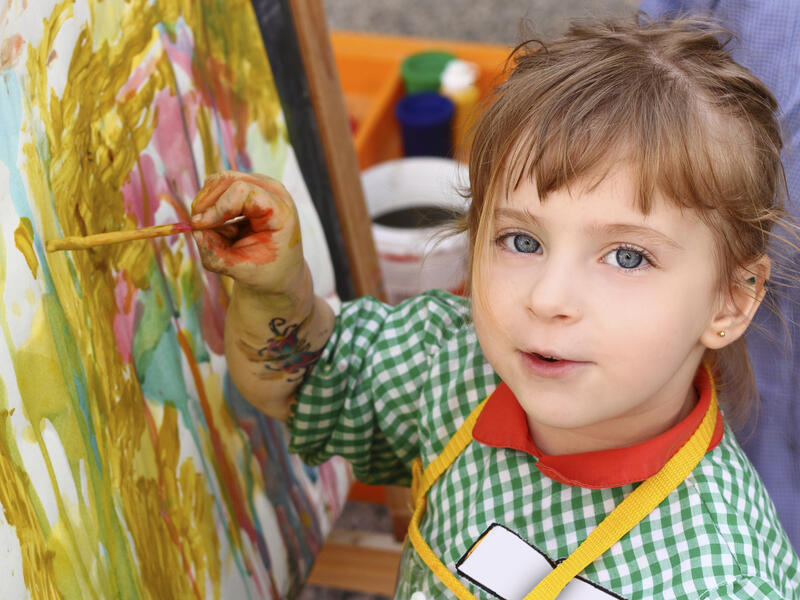Self-confidence is an important quality to develop as preschoolers that will positively influence the rest of their lives.
Learn what self-confidence is, the importance of it, and how you can help your child develop their own self-confidence.
What is self-confidence?
Self-confidence is believing in yourself and accepting your own abilities, beliefs, and mistakes. A person who is confident understands their strengths and weaknesses. Self-confidence refers to a person’s willingness to try new things and take on new challenges that come their way.
Importance of self-confidence
Understanding the importance of self-confidence is the first step in supporting the development of your child’s self-confidence. Self-confidence in children can help to:
- Build positive relationships. Self-confidence helps children interact with others and form close friendships. The more confident your child is, the easier it is to interact with others.
- Take on new challenges. Children will believe in themselves and feel more comfortable when faced with new challenges. An “I can do it” attitude will be likely in children who are confident in themselves.
- Increase sense of self-worth. With a positive sense of self, your child will be more likely to see the positive in situations. They will also be less likely to give up when things do not go their way.
Tips to build your child’s self-confidence
Self-confidence develops over time. To help your child develop self-confidence:
- Provide consistent routines. Having a predictable routine helps your child feel in control of the situation and allows your child time to prepare for what is coming next. A consistent routine will help your child feel comfortable to explore, grow and learn. Providing your child a visual schedule of their daily routine may be helpful.
- Celebrate your child’s effort. Praise your child for their effort, regardless of the outcome of the situation. Let your child know you are proud and encourage them to keep trying.
- Allow your child to learn from mistakes. Mistakes are how children learn best. Self-confidence is not about always succeeding, but being able to learn from your experiences and mistakes.
- Encourage problem solving. When things do not go as planned, help your child work through the problems. Be supportive, but do not solve the problem for your child.
- Be a role model. Set a good example for your child. Children learn through watching and observing. If your child sees you modeling self-confidence, your child will likely show the same qualities.
Working to build your child’s self-confidence is one of the best ways you can spend your time as a parent. It may take a little extra effort sometimes, but you will be setting your child up for success now and in the future.
Learn more
- What self-esteem looks like in 3-5-year-olds
- Why your child needs plenty of zzz’s
- Preschool friendship: Social skills start in early childhood
…
Posted In Children's, Parenting
